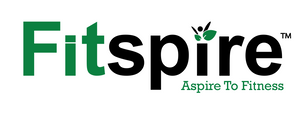Keto Diet has become a go-to trick for weight loss in today’s modern world. The concept revolving around the keto diet is to consume fewer calories from carbohydrates and more from protein and fat. Keto Diet is said to have an unusual way of changing metabolism.
As the high-fat, low-carb ketogenic diet is becoming more and more popular and widely accepted, the interest and concern on how to maintain optimal health also rise.
One's metabolic alters as a result of the keto diet. Due to significant changes and alterations in food options, dieters can consider using supplements to enhance their athletic performance when they exercise on a low-carb diet. The keto supplements also lessen the negative symptoms of the keto flu and cover up for the specific nutrients.
Lack of vitamins and minerals during the shift into ketosis is a common cause of keto flu. The correct keto supplements will help you to smoothly transition to your keto journey smoothly.
Keto slim capsules or weight loss supplements shift the metabolism, improve the mental health of a person, and help the body in fighting against carbs. Many supplements are available on the market, all of which claim that they are natural, nutritious, and free of adverse effects. But one must know how to pick and choose the right supplements.
Here is a list of the best supplements one must consume while on a keto diet.
Electrolyte supplements like magnesium
Those following a ketogenic diet are more prone to electrolyte deficiency. The first weeks can be a challenge for a body as it tries to adapt to the low absorption of carbohydrates.
Transitioning to a ketogenic diet may drop the amount of sodium, potassium, and magnesium in your body. Furthermore, this can lead to keto flu as well. Moreover, athletes tend to lose more fluid or electrolytes through sweating.
One must try to add sodium to their diet by simply adding salt or sipping on a soup or broth. Nuts, dark leafy greens like spinach, pumpkin seeds, and avocado are excellent sources of magnesium and potassium that one can have. Additionally, electrolyte supplements are also available at offline or online stores and are best to cover up for the lacking minerals.
Omega-3 Fatty Acids
The EPA and DHA included in omega-3 fatty acid supplements like fish or krill oil are known to reduce inflammation, lower the risk of heart disease, and avoid mental health.
When following a high-fat diet, omega-3 supplements can assist maintain a healthy omega-3 to omega-6 ratio, making them especially helpful for individuals on ketogenic diets.
One must eat extra salmon or sardines to increase their consumption of omega-3 fatty acids while on a ketogenic diet.
Before using omega-3 supplements, individuals who are taking medications that alter blood clotting, such as blood thinners, should consult with a doctor.
MCT Oil
MCT Oil, which is derived from coconut oil, is a highly concentrated source of “ Medium Chain Triglycerides”. It has become a popular choice among keto dieters due to its potential beneficial effects like boosting the functioning of the brain and weight loss.
MCT oil aids in diminishing your appetite and simultaneously provides energy as well by producing ketones.
MCT oil can simply be incorporated into shakes and smoothies, or it can be consumed straight from the spoon for an instant fat boost.
One can intake MCT through supplements like MCT capsules or by consuming coconut oil.
A doctor's recommendation is essential before consuming MCT oil as in some people it may lead to symptoms like diarrhea and nausea.
Collagen
Supplementing collagen protein during the keto diet can help improve your digestive system, immune system, joint health, skin, and hair. There are several types of protein in the human body, but collagen is the most abundant. It helps hold the body together by repairing tissues and bones. Pick a low-carb, keto-friendly collagen powder that's free of sugar. In addition to being virtually tasteless and odorless, collagen powder is easy to mix with tea, coffee, or smoothies.
Exogenous Ketones
Exogenous ketones are a form of ketone derived from an external source. These are frequently consumed to increase blood ketones. Exogenous Ketones are dietary supplements that provide you with an instant source of ketones in the form of Beta-hydroxybutyrate (BHB) which helps your body to get into ketosis. It also provides more energy, increases focus, and decreases inflammation in the joints. Ketone powders can be taken pre-workout, between meals, or even while fasting. It is very beneficial for athletes to use these to boost their performance, speed up their muscles, and decrease their appetite.
Keto Greens / Green Powder
We frequently undereat vegetables when on the ketogenic diet. Including a green powder in your supplement regimen is a simple method to increase your vegetable intake.
Greens powders are powdered versions of nutritious plants like kale, spinach, and spirulina. They may serve as a handy supply of nutrients for those on ketogenic diets. The specified proportions can be used to create the powder.
- A blend of greens (4000 mg)
- Antioxidant (950 mg)
- A berry blend(500 mg)
- An absorption blend (300 mg)
Just stir in one scoop of powder to your preferred beverage up to three times daily and you are good to go.
Digestive enzymes
Consuming a digestive supplement that has the enzymes lipase and protease, which break down fat and protein, may help ease digestive issues that usually arise while transitioning to a ketogenic diet.
Side effects of the Keto Diet
Keto has a few side effects that aren’t usually serious. Keto dieters might have
- Constipation
- Mild low blood sugar
- Indigestion
- Low cabs may result in kidney stones or high quantities of acid in the body (acidosis).
- The "Keto flu," which can include headaches, weakness, irritability, smelly breath, and weariness, is another potential adverse effect.


